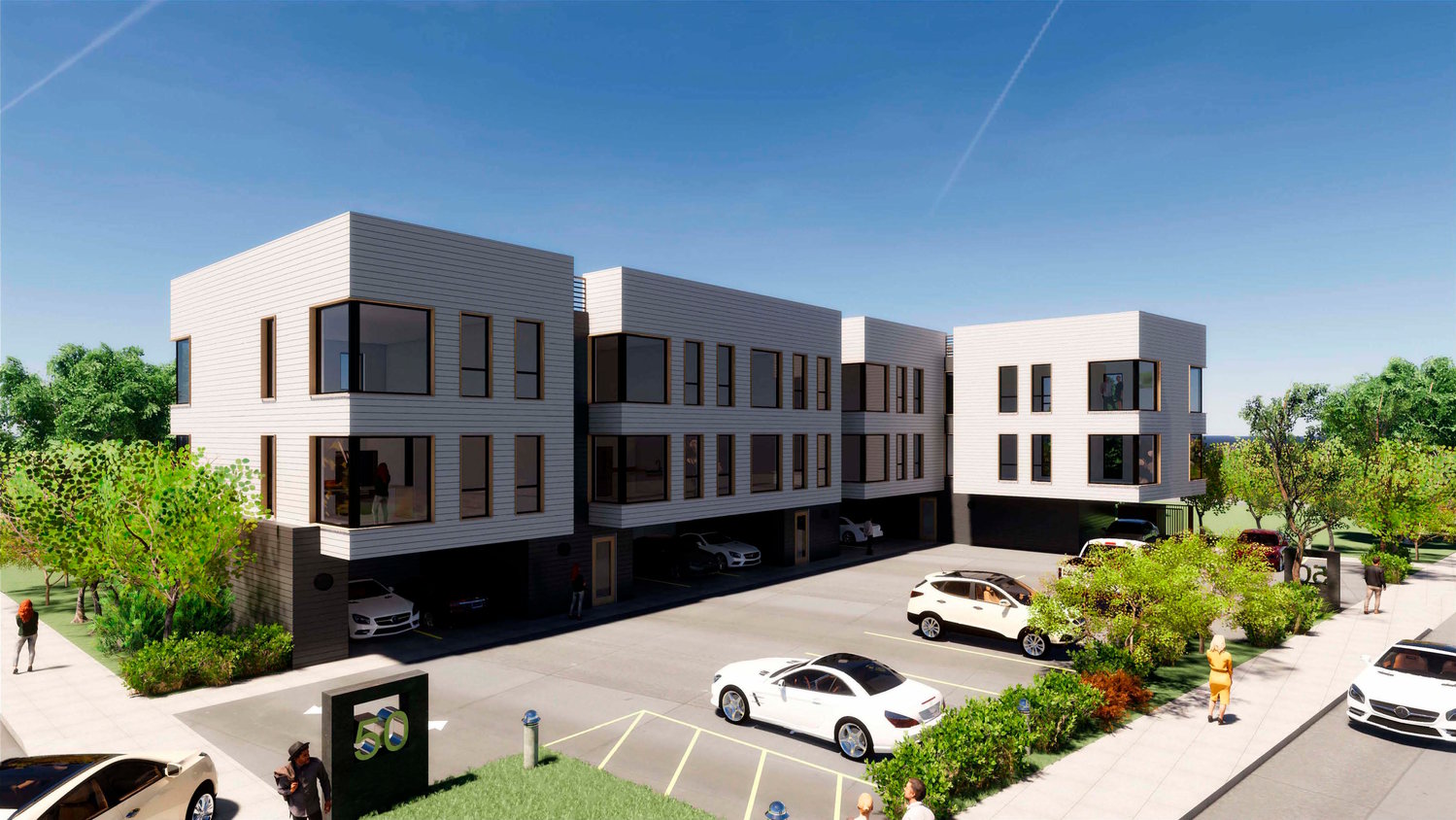County Planning Commission questions Roosevelt apartment proposal, again

On Sept. 26, the Nassau County Planning Commission re-examined a proposal for a three-story, 15,000-square-foot apartment building at the corner of Roosevelt Avenue and Cochran Place, and after discussion, again raised concerns about the lack of an affordable housing component in the project, as required by the Long Island Workforce Housing Act.
Commissioners voted unanimously to send the proposal back to the Village of Valley Stream with a request for more information about the inclusion of affordable housing in plans for the project, which in its most recent form is requesting seven variances beyond what is allowed in the village code, including for density, parking and yard setbacks.
This is the third time the proposal, from the Manhattan-based Kay Development LLC, has come before the commission. The first was in November 2018, when county planners requested more information from the village about the inclusion of affordable housing. The second was in June, when the planning commission denied the project, leaving it to the village Board of Zoning Appeals to override the decision with a supermajority vote, which it failed to secure.
“By doing this, we’re staying in line with how we feel about workforce housing, and by just letting it go, [the developer] is not going to hear our voice,” said planning commission Second Vice Chairman Leonard Shapiro. “And I think our voice is very important.”
“I agree with the vice chairman,” added First Vice Chairman Jeffrey Greenfield. “We’re sending a message, not only for this project but for other projects in the larger community and the attorneys that practice in this arena, and I think it’s important to reiterate our commitment to the concept of workforce housing.”
The nearly 15,000-square-foot plot of land currently houses a privately run parking lot owned by Valley Stream-based Valley Parking Inc. The company paid nearly $19,000 in school taxes and roughly $2,000 in village taxes on the property in 2018, according to village and county tax rolls.
The Workforce Housing Act requires local municipalities — in this case, the village — to mandate that developers proposing housing projects with five or more residential units set aside 10 percent of those units for workforce or affordable housing, which, according to the law, would be priced appropriately for individuals and families making up to 130 percent of the median income for the area.
If a proposal lacks affordable housing units, then the developer must set aside those units in another project within the same municipality or pay a fine.
Kay principal and founder Vassilios Kefalas, a longtime Valley Stream resident, previously told the Herald that he had no intention of including affordable housing in the project. Speaking before the village BZA on July 16, William Florio, working as a facilitator for Kay, said he would work with the village board of trustees to negotiate a fine.
Villages and towns are responsible for upholding the requirements set forth in the Workforce Housing Act, but according to a 2016 audit report by the office of State Comptroller Tom DiNapoli, enforcement can be spotty, depending on the municipality involved. A shortcoming of the law, the audit said, was the lack of a penalty for noncompliance.
The proposal was set to come before the village Board of Zoning Appeals again on Tuesday, after the Herald went to press. Because the planning commission deemed the project incomplete — referring it back to the village instead of denying it or requesting a modification — county planning officials said it would be up to the BZA’s interpretation of General Municipal Law whether it would need another supermajority, or four of the five board members, to vote to approve the project.
Still, the planning commissioners expressed hope that by using the limited powers granted to them by state law, deeming the application incomplete might give the parties involved a sense of what they would like to see in higher-density projects such as these.
“If [the proposal] is considered incomplete, [Kay] would have the opportunity, if they wanted to, to read the transcript, to see that we said that the over-intensification has not been addressed, that parking deficiency hasn’t been addressed nor workforce housing,” Commissioner Jerome Blue said.

 47.0°,
Fair
47.0°,
Fair 



